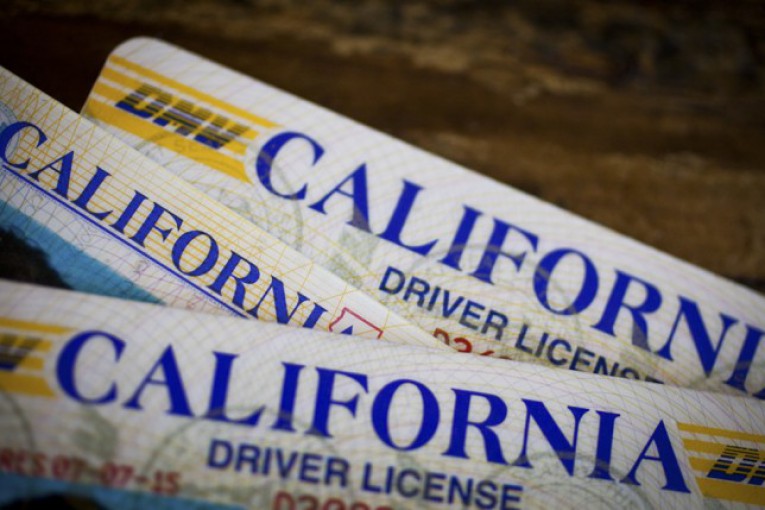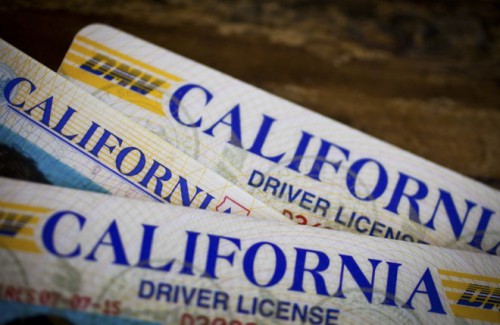

On Friday, Governor Brown vetoed SB 249, sponsored by Democratic Senator Ben Hueso, a measure to create “enhanced” driver’s licenses (EDLs) to be used as an additional border-crossing identification document available only to U.S. citizens.
The bill would have authorized the Department of Motor Vehicles to enter into a memorandum of understanding with the U.S. Department of Homeland Security, allowing the department to issue “enhanced” driver’s licenses, provisional licenses and identification cards.
The bill would also require a person “applying for the initial issuance or renewal of an enhanced driver’s license, provisional license, or identification card to submit, under the penalty of perjury, additional proof of identity, residency, and citizenship that satisfies the requirements of the federal Western Hemisphere Travel Initiative.”
The bill would have authorized the Department of Motor Vehicles to issue driver licenses embedded with radio frequency identification (RFID) computer chips that broadcast personally identifying information to an electronic reading device for the intended purpose of crossing U.S. borders.
The bill was supported by cities and chambers of commerce along the Mexican border, believing that it would speed up long wait times. However, groups like the ACLU were worried about several features of the bill, including the microchips embedded within the license, which would contain personal identifying information that would be readable from up to 30 feet away and therefore posed a risk of tampering – and could be used for racial profiling.
In his veto message Friday, Governor Brown wrote, “While I support the purpose of this bill to allow easier passage across certain borders within the Western Hemisphere, I believe that there are other means, such as the U.S. Passport Card, that achieve the same goal without imposing new burdens on the Department of Motor Vehicles.”
The ACLU in a press release late Friday said, “EDLs employ outdated technology that would put Californians’ private information at risk and open the door to high-tech racial profiling and employment discrimination.”
“It is a relief to know Governor Brown vetoed SB 249 and that Californians won’t be carrying unencrypted driver’s licenses that could subject us to tracking, profiling, and identity theft,” said Nicole Ozer, Technology & Civil Liberties Policy Director with the ACLU of California.
Others “challenged the bill as an unnecessary measure that lacked even the most basic privacy and security safeguards included in a U.S. passport and even modern smart chip credit cards.”
The ACLU was concerned that this technology was insecure ten years ago, when the Department of Homeland Security (DHS) under President Bush first introduced these licenses. At the time, DHS admitted that the personal information stored in these chips could be read from a distance of up to 30 feet.
They wrote, “In San Francisco, a security researcher built a reader with $250 in spare parts and demonstrated someone could easily read and copy these documents, without anyone’s knowledge, and use them to track, stalk a person or steal personal information.”
“Had the bill been signed into law, people carrying an EDL would have had their criminal background check linked to their driver’s licenses, potentially letting police officers know someone’s race, citizenship status, and criminal history before coming into contact with that person,” the ACLU continued. “Finally, SB 249 would have allowed any employer in the state to make EDLs a job requirement even if the licenses were not job-related. As a result, employers could have fired or refused to hire anyone unwilling to put their personal privacy at risk or anyone not eligible for an EDL, such as noncitizens or those that don’t pass a federal background check.”
Senator Hueso believed that the bill was necessary because each year “45 million vehicle passengers and 15 million pedestrians cross the border into California through the six ports of entry from Mexico. Long wait times, as high as three to four hours, between Imperial County and the Mexico border accounted for an estimated output loss of $1.4 billion and 11,600 jobs lost nationally in 2007. More recent studies indicate a $620 million loss due to congestion at the Imperial County ports of entry and a nearly $1.3 billion revenue loss at the San Diego ports of entry.”
The bill would have significantly reduced wait times at the border while strengthening border security.
The ACLU would have dropped opposition to the bill but the Senator Hueso reportedly nixed a data-encryption requirement and a ban that would have prevented companies from requiring workers to get the licenses.
Senator Hueso highlighted privacy protections such as protective sleeves that prevent hackers and thieves from reading a license and agreeing not to store personal information on the chip – measures that the ACLU rejected as insufficient.
—David M. Greenwald reporting






Does this mean that we will need to have passports to get through airport security in the near future?
It doesn’t change the status quo at all.
Good call, Governor. This bill was very poorly thought through. Nice to see someone in Sacramento is awake.